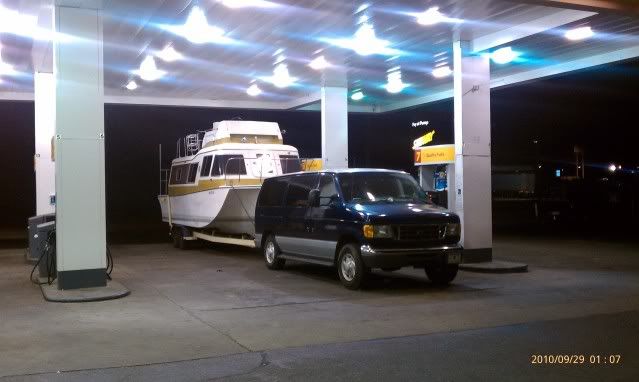No, My mistake. I was thinking of something else. Sorry.
I strongly recommend remaining OEM. Only OEM meets FMVSS standards. NO aftermarket brand does. Just ask and make them show you the credentials. They can't.
The Motorcraft "Super Duty" pads meet FMVSS and will give much greater life for heavy brake loads.
Fuel, steering and brakes are three areas I do NOT mess with. There was a lot of thought that went into the original engineering. I don't proclaim to be smarter than a dedicated team and thousands of hours of testing.
Well you'd be wrong here. ISO/ts16949 standards are
worldwide, including our beloved FMVSS. This standard is widely used for OE and aftermarket parts grading. We didn't make it up. It certifies compliance for the manufacture of OE and aftermarket parts, practices and standards for the industry. Powerstop is ISO/ts16949 compliant or better.
There are many components manufactured locally such as brake lines that have specific crimpings/markings to identify their origin that are registered with the DOT. Your local hose shop that does any OTR work and manufactures replacement hoses has a DOT cert and identifiable crimp as an approved replacement supplier. Such is with brake pad manufacturers and other automotive parts suppliers. But the OVERRIDING standard is TS16949 for parts compliance. This is what the aftermarket (and who most often times are also the OE) build to.
DJ I do share your regard to the initial engineering in OE applications, I'm merely pointing out that the engineering of the OE part is not unique to a FMVSS spec, but rather ISO standards that are common to the industry. I agree that a manufacturer's expected load on something like a brake or suspension component is certainly driven by the sum knowledge of the vehicle design, thus not universal. However peer review of such a component leads to advancement in design and shouldn't be dismissed as inferior, especially when design elements meet or exceed the original ISO specs. It's a better mousetrap so to speak. The same thing that happens every day in any OE manufacturer's R+D department for the next model year. Development is good, and the next great aftermarket product may be the OE part of the future. Detroit, Japan and Germany don't think this stuff on their own and God knows the Chinese and Koreans haven't had an original thought in years. Aftermarket ain't all bad when held to standards.






















